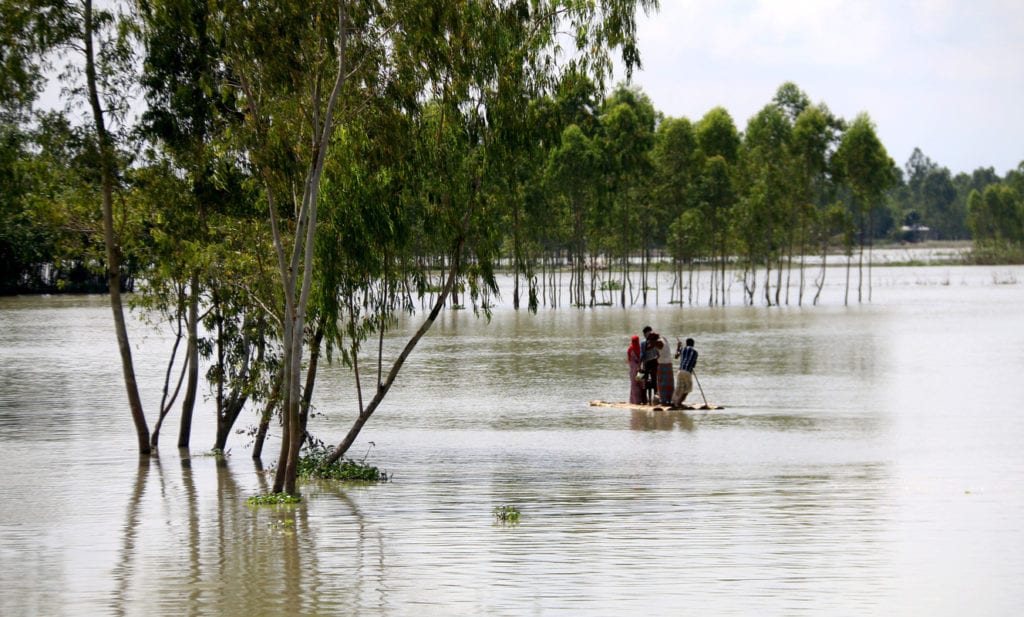Despite calls from activists and several candidates, the Democratic National Committee (DNC) has announced that they will not host a debate on climate change. They’ve actually gone a step further and said that participating in any alternative climate change-only debate could result in a candidate being barred from future official debates. The youth-led Sunrise Movement has been organizing in response, and they’re camping out in front of DNC headquarters right now.
In addition to the DNC’s concerns that they’d have to grant every issue its own debate (which could lead to as many debates as there are candidates), I suspect the DNC is afraid that going in depth on policies like the Green New Deal, or Jay Inslee’s mountain of a climate plan, would they believe would alienate the average voter more than it would excite their base. I’m sympathetic to the DNC’s fears that they are being pushed to do more on climate while Republicans have barely moved from outright denialism. But Sunrise is right; avoiding this debate is bad for both the country and the party.
Here’s why:
Climate policy impacts all areas of policy.
A key reason that climate change deserves its own debate is that both the impacts of, and the solutions to, the climate crisis are incredibly far-reaching. This isn’t an environmental issue alone. Climate change is impacting agriculture and food systems, forests, biodiversity, human rights, access to water, sea level rise, and natural disasters like forest fires. It has already triggered migration around the world as people are forced to leave their homes when adaptation is no longer possible.
Addressing climate change is going to require broad transformations in our economy and society, including transportation, shipping, agriculture and the food system. Just about every policy – from land use to what food is served in government-run cafeterias – has a climate implication. The breadth of these impacts alone should justify giving climate change its own debate.
It’s the defining issue of the next presidency.
You’re probably tired of reading this (I’m certainly getting tired of writing it), but we desperately need to act on climate now. That means the next president’s term, whether they like it or not, will be defined by climate change. If the climate activists and movements are successful in driving climate action that matches the scale of the problem, something like the Green New Deal, it would be a combination of massive legislative efforts and executive action. This will impact every aspect of U.S. policy – foreign and domestic – with huge implications for U.S. society. It will also require a massive amount of political capital, even with activists pushing for it.
Inaction, either due to denial (read: the Republican Party) or unwillingness to spend the political capital, leads to the same thing: a presidency and a legacy defined by an escalating climate crisis as the chances of meeting the Paris goals become all but impossible.
The headlines for last fall’s IPCC special report on the 1.5 degree goal said that the world had essentially 12 years left to take action on climate. That’s a slightly simplified version of what the IPCC itself said – and the important point that these headlines miss is that we can’t wait until 2028 or 2029 to start this work, even if we then somehow cut emissions dramatically overnight to meet a 2030 target. Continued emissions between now and whenever those emissions cuts start matter too much.
The next presidency will run from January 2021 to January 2025. We cannot afford the next president pushing this off until re-election or until after they get other things done.
We can see the emergency – and we’re going to hold government accountable.
Climate impacts are here. It is no surprise that climate change has risen as a salient electoral issue this year. Action should have started decades ago, and every day we delay means more warming, more hunger, more flooding and droughts and displacement.
From a policy perspective, we should be having a great debate about how we’re going to address this challenge. From a political perspective, we need to know if these candidates are serious, capable, and willing to expend the political capital necessary to enact needed policy change. Voting in the U.S. system is the most direct way for politicians to be held accountable. Voters need and deserve the opportunity to hear in depth what the candidates are willing to do and how they plan to get it done.

